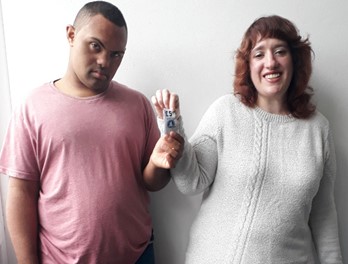Workshops

The Home Office estimates that less than 13% of disability hate crimes are reported (Home Office: Hate Crime, England and Wales, 2017/18 Statistical Bulletin 20/18, 16 October 2018).
To help address the issue of under-reporting, we've developed a disability hate crime workshop with trainers who have learning disabilities and/or are autistic. In addition, the trainers regularly attend events and in 2019, they hosted an event with Avon and Somerset Police, aimed at tackling hate crime and supporting people to report it.
Workshops are designed to be interactive, fun, and accessible. They use drama performances to bring situations to life, and cover:
- How to identify disability hate crime
- Why it's under-reported
- How to support victims
- How to improve reporting
Mate crime
One aspect of disability hate crime, 'mate crime', where a person is befriended to exploit them, is rarely reported by victims.
Case study: Jim's story
Jim was befriended by someone who began 'borrowing' money on a weekly basis, claiming to have a sick child.
Jim's case was recognised as a disability hate crime when he attended a Brandon Trust workshop; subsequent actions led to a prosecution.
Jim revealed that he had previously told his support agency but after receiving a dismissive response, felt unable to mention it again.
Cases such as Jim's, highlight the need for greater awareness and we feel that everyone should have the opportunity to learn more about hate crime issues.
Further information
We offer two different workshops:
- One for disabled people, including people with learning disabilities
- One for professionals where we can tailor the training to suit your needs
Download and print the Hate Crime Workshop poster (PDF, 132KB)
For more information or to book a workshop, please contact Sarah Howard:

Working together to deliver Bristol hate crime services
Hate crime - Report it, Stop it!
Freephone 0800 171 2272

